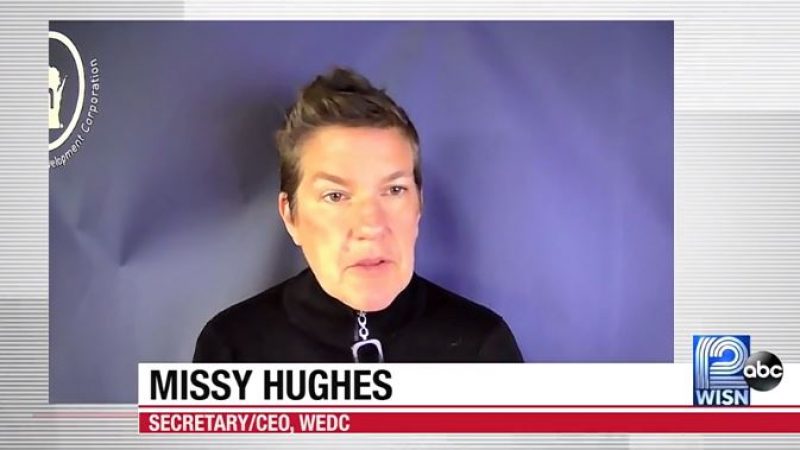Wisconsin Economic Development Corp. Secretary and CEO Missy Hughes acknowledged that some businesses are having a hard time finding help, but said data doesn’t support the idea that extra unemployment benefits are keeping people out of the workforce.
“There’s a lot of complex factors at work in this worker shortage, all kind of umbrellaed by the demographic challenge that we have in Wisconsin, which is an aging population,” Hughes said in an interview aired Sunday on “UpFront,” produced in partnership with WisPolitics.com.
Hughes said people still on the sidelines after the pandemic are not able to find child care, transportation or have other obstacles.
She said the lack of J-1 visas, which allow workers to come in from other countries, also is hurting some businesses.
>> WisPolitics is now on the State Affairs network. Get custom keyword notifications, bill tracking and all WisPolitics content. Get the app or access via desktop.
Hughes said WEDC is looking to help small businesses recover from the pandemic with $5,000 grants. WEDC will distribute the grants to up to 84,000 small businesses.
“UpFront” host Adrienne Pedersen asked if $5,000 is enough. Hughes said $5,000 would be a lot of money for some businesses, but not others.
“They are going to put those dollars right to work,” she said. “When you infuse money in the local economy, you can see those dollars turn over eight times within the community. So it’s really a magnifier and a multiplier effect we’re looking for with that $5,000.”
The grants will come from $420 million in federal stimulus money, and Hughes said they hope to have it all distributed by the end of June.
In another segment, the president of the Wisconsin Hotel and Lodging Association said the extra $300 in federal benefits is keeping people from returning to the labor market.
Bill Elliott said his association members are hearing “feedback that (people) don’t want to come back to work yet because they are getting that $300.”
“Labor was a problem going into the pandemic, it’s going to be a problem coming out,” he said.
Elliott said his association has asked Gov. Tony Evers’ administration to end the $300 benefit, and is also working with state lawmakers on the matter.
Elliott said the summer tourism season is looking better than last year, and his association is seeing pent-up demand in the leisure travel market. But he said it’s going to be a long climb to recover from pandemic-related losses.
“Our projections show it’ll probably be 2024 at the earliest before we get back to our pre-pandemic numbers,” he said. “You can’t sell last night’s hotel that went empty. It’s like selling yesterday’s newspaper.”
Also on the show, a Wausau radiologist who is running for U.S. Senate said her campaign will be built around health care, climate change and immigration justice.
Dr. Gillian Battino said she has been thinking about running for Senate for several years and believes a “fresh perspective” is needed.
“I would be the first-ever woman physician in the Senate,” she said, adding that she would be a lawmaker who is “well versed in women’s rights and also well versed in public health.”
Battino said she will differentiate herself in a large Dem primary field through “a lot of hard work” and running “a local race in every municipality.”
See more from the program here.


